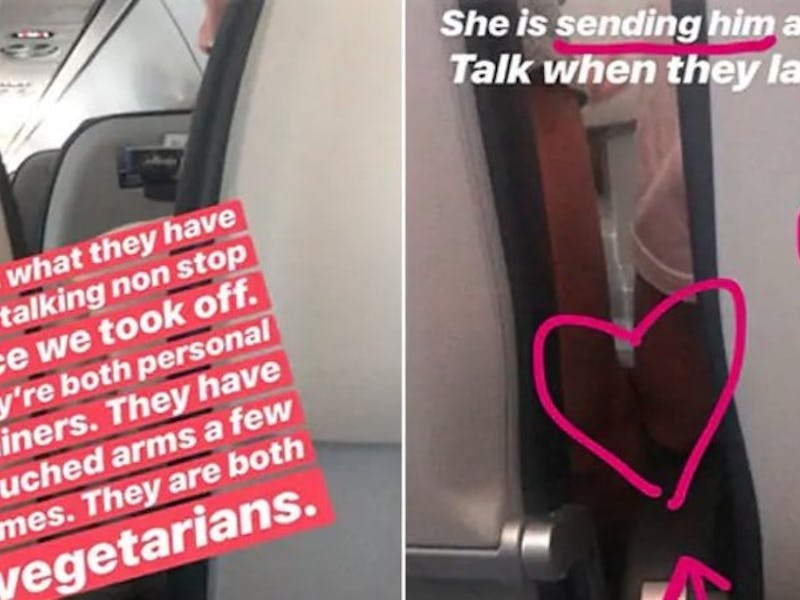Plane Bae Proves Women Deal With Unfair Consequences of Going Viral
Mainstream memes are used to dox, harass, and mock women who did nothing wrong.

Plane Bae was a love story fueled by voyeurism. On July 3, 30-year-old Rosey Blair tweeted that an airplane seat exchange she’d initiated led to love at first sight in the row ahead of her on a flight from New York to Dallas. The thread shot to viral status that day, and in the following week has led to a Good Morning America appearance for 30-year-old #PlaneBae Euan Holden and over 50,000 new followers for Blair, while the woman she photographed without consent has abandoned social media after a maelstrom of harassment.
As the tide turned from applause to anger, Blair issued multiple lengthy apologies, but still failed to reach the root of her wrongdoings: it’s not that she overwrote another woman’s story — although she did, and that was ethically dubious — it’s that, regardless of the real relationship status the strangers in front of her shared, or began to share, Blair chose an opportunity to go viral over the right to another person’s privacy. Once again, a woman was the victim of the meme economy.
It’s not a new tale. Doxing has become a daily routine for the purveyors of internet justice. And sometimes, the crowd cheers. In the cases of #BBQBecky or the New York lawyer who harassed some restaurant workers for speaking Spanish, the reaction to viral shaming has been overwhelmingly positive.
But in cases like #PlaneBae, the reason Blair’s prying narrative garnered so much attention isn’t because it held someone vile, like the women who called the cops on a little black girl selling water bottles, accountable. It’s because Blair herself crafted a work of fiction — a modernized romantic meet-cute trope — with actors who couldn’t consent to their roles.
In her Twitter apology, Blair labeled the incident as an “inspiring” moment, something “beautiful” and “charming,” but in reality, all of those adjectives are subjective.
There’s no reason to try and make normal people doing normal things go viral. “I’m going to take pictures of you and put them on the internet,” isn’t just a schoolyard taunt or a social media faux pas. It’s a legitimate threat to people’s livelihoods, especially women and minorities. It’s one thing when someone behaves publicly in an absurd or attention-grabbing manner. How else would six-second comedians on Vine have gotten loops without real-life antics? Or YouTubers? Or the revolving door of meme-creators? It’s another thing when private lives are disrupted for the sake of someone else’s pageviews.
The backlash is about more than just sexism. It’s about power. When then 18-year-old Johnna Hines took a video of herself using her boyfriend’s privates as a beauty blender makeup tool, she was met with scorn, slut-shaming, harassment, and mockery. But unlike #PlaneBae’s doxxed beau, Hines had the advantage of autonomy. It was her choice to publicize her behavior. And so even though the backlash was sexist, the teenager wasn’t a social media martyr.
The same ethics behind libel lawsuits can’t be expected to hold any authority over meme culture. It’s impossible to legislate. But if the private torment Blair claims to have experienced post-controversy holds any merit, maybe it’s enough to hope that the internet can collectively learn to play nicer.